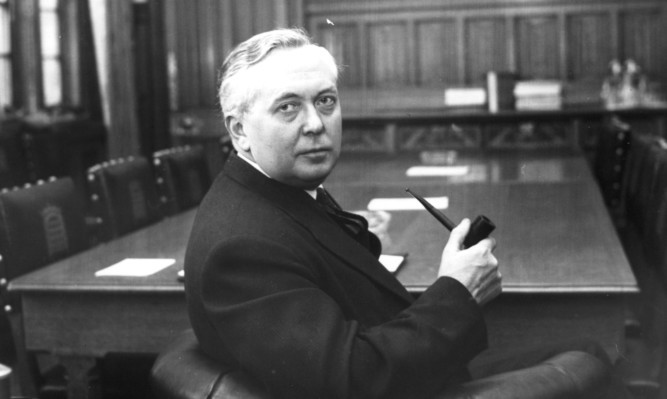Harold Wilson was the Labour Prime Minister for much of the 1960s and ’70s.
A brilliant political operator, Wilson won four out of five elections and had an uncanny knack of sensing when an issue could become too hot to handle.
Thus he wisely kept Britain out of the Vietnam War despite pressure from our American allies.
He survived a succession of economic crises and held his party together under huge difficulties and with great aplomb.
One of the issues where Wilson sensed trouble was the interception of MPs’ telephone calls by the Security Services. On the back of the celebrated Profumo scandal of the early 1960s Whitehall civil servants and the security establishment wanted to bug MPs but Wilson was having none of it.
And thus came into being the Wilson doctrine by which MPs’ telephone calls were to be protected from snooping by all three of the security services, MI5, MI6 and GCHQ.
On November 17 1966 he was unequivocal. There would be “no tapping of telephones of members of parliament” and the House of Commons would be informed if there was to be any change of policy.
After that the Wilson doctrine and therefore the implicit promise to inform the Commons has been repeated by every Government, including by the present Prime Minister.
The point of principle is obvious. In a democracy, elected members of parliament have to be able to pursue issues without fear or favour.
Constituents, whistleblowers of official scandals, or journalists and campaigners have to be confident they can approach an MP without the fear of being monitored by a spook.
What Wilson sensed was that this principled position was shared, regardless of politics, across the members of the House of Commons.
It was always accepted by everyone that if there was evidence of criminality by any MP then police should be able to apply to the Home Secretary for a warrant by agreement with the Prime Minister.
However, beyond that MPs of all stripes and persuasions have been insistent that the protection for their communications was a constitutional protection for citizens.
Now the Wilson principle is in danger of being junked.
Last week the obscure and curiously named Investigatory Powers Tribunal ruled that all of this history was null and void. The finding of the tribunal, a secretive body which does not itself abide by the most basic principles of a judicial institution, was that the Wilson doctrine was not “legally enforceable”, had never really been in place and that ministerial statements suggesting that it was were vague and probably deliberately so.
To add injury to insult the Government’s own lawyer, Mr James Eadie, spent much of his highly expensive time before the tribunal attempting to undermine that Wilson doctrine and suggesting that it was impossible to have it anyway given the modern techniques of the mass trawling of data.
That is to say that the modern method of bulk monitoring is to collect data on everyone.
It also emerged in the operational notes to the security services that their most recent versions seemed to exclude Members of the Scottish Parliament and the other devolved administrations from any protection from snooping.
That is in contrast to versions which had appeared before 2014. I cannot imagine what event last year could have provoked such a renewed interest in the activities of Members of the Scottish Parliament.
All of this detonated a fair sized stushie in the Commons last Wednesday and will now be the subject of an emergency debate today.
Pretty clearly the Government has altered the Wilson doctrine and the tribunal’s attempts to rewrite history by pretending it never existed in the first place are seriously concerning MPs across the political spectrum.
This Government with a bare majority of 12 are already being pressed on the issue by their own MPs such as the widely respected David Davies and the energetic Eurosceptic Sir Peter Bone.
The debate today will be on a technical motion, however there is already a substantive motion tabled which, in time, may be of more impact and offer real danger for the Government..
Sponsored on a cross-party basis by the Greens, SNP, Tories, Labour and Plaid Cymru it makes the classic case for the Wilson doctrine and calls for it to be enshrined in the legislation updated for the modern world.
It will gather support over the coming weeks and unless the Government is prepared to change tack they might find themselves in the receiving end of a hard parliamentary lesson.
If this motion comes to a vote they could well be defeated. In similar circumstances Harold Wilson would have sensed a coming political storm and taken evasive action but then David Cameron is no Harold Wilson.
